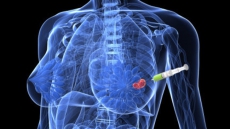The opening session of the 20th International AIDS Conference (AIDS 2014) began here Sunday with tributes being paid to the six delegates who lost their lives aboard the Malaysian Airline flight MH17 in Ukraine.
A one-minute silence was observed in their honour at the Melbourne Convention and Exhibition Centre attended by officials from the International AIDS Society and representatives from those organisations who lost their colleagues in the air crash.
A candlelight vigil will be held Tuesday at Federation Square in the heart of the city, said a statement from the International AIDS Society.
Michel Sidibe, executive director of UNAIDS, said efforts to increase access to anti-retroviral therapy (ART) are working.
"In 2013, an additional 2.3 million people gained access to the life-saving medicines. This brings the global number of people accessing ART to nearly 13 million by the end of 2013," he informed the delegates at the opening session.
Based on recent scale-up, the UNAIDS estimates that as of July 2014, as many as 14 million people were accessing ART.
"If we accelerate a scale-up of all HIV services by 2020, we will be on track to end the epidemic by 2030," Sidibe emphasised.
"And if not, our risk would be significantly increasing the time it would take, adding a decade, if not more," he warned.
Addressing the gathering, professor Francoise Barre-Sinoussi, the AIDS 2014 International Chair and president of the International AIDS Society (IAS) said, "The tremendous scale-up of HIV programmes has, for so many people, transformed HIV from a death sentence into a chronically manageable disease."
Nevertheless, these remarkable achievements are still not enough as 22 million people still do not have access to treatment, he noted.
"We need to step up the pace and redouble our efforts. Too many countries are still struggling to address their HIV epidemic with their most vulnerable people consistently being left behind," Barre-Sinoussi added.
Some 12,000 participants across the globe have gathered here for the conference under the theme titled "Stepping up the Pace".
During the next five days, delegates will discuss latest research developments and will hear about the status of the epidemic from world-renowned experts.
"AIDS 2014" offers delegates a strong scientific programme with presentations around key issues including HIV cure strategies and challenges and HIV prevention.






